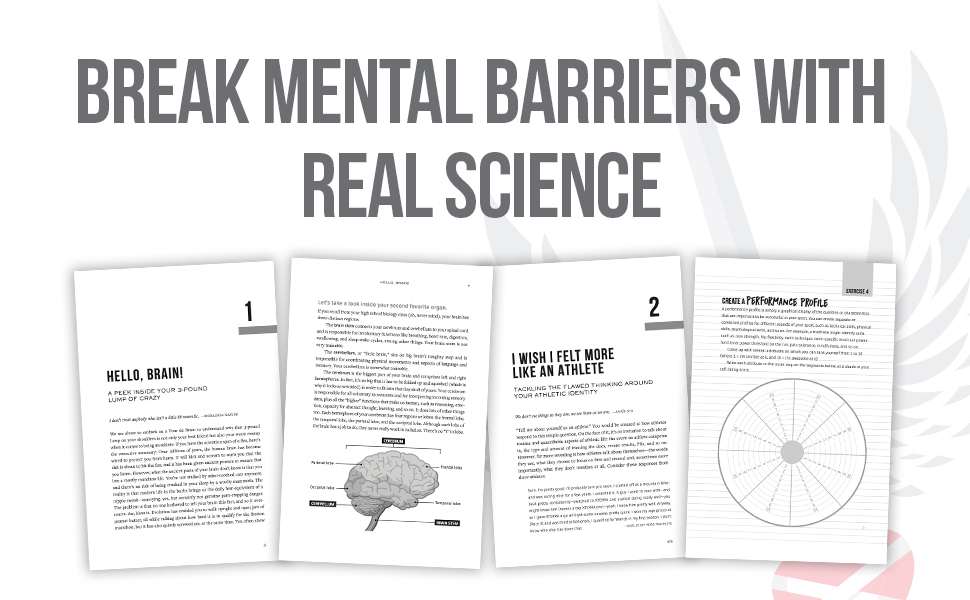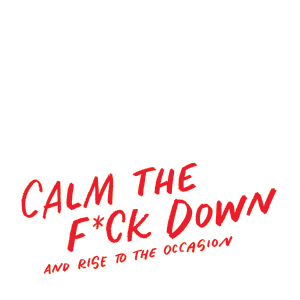Customer Services
Copyright © 2025 Desertcart Holdings Limited
Desert Online General Trading LLC
Dubai, United Arab Emirates


Full description not available




M**I
Fun Read, but information was basic for anyone that has studied mental training in sports
Pretty good stuff, but I think this was pretty basic. I liked the writing, and liked the perspective provided by a world-class athlete; but overall, I did not find much new for me. I surely think younger (less experienced?) athletes could pick up several nuggets of wisdom here, so if you are eager to find an "edge" or solve a mental/emotional "weakness" in your game, then by all means give this book a read.Mental training, and controlling emotions are a HUGE part of achievement in many areas of life, so I don't want to discourage anyone from reading this book-it is a fun and easy read, but it just didn't give me a lot of new information.
J**N
A great book for any athlete who ever thinks about what they're doing
A friend of mine posted an online comment about this book that caught my attention so I decided to read it. My friend is a much better athlete than I am and competes in marathons and triathlons throughout the year, so I expected this book to be aimed at elite athletes. I was a little intimidated, but decided to read it, anyway. I'm glad I did. I believe this book can be very helpful to athletes at all levels; not just elites.The authors explain that you are controlled mentally by three parts of your brain that each influence your decisions differently. They call the first your 'chimp brain' which is your limbic system and makes fight or flight decisions to help you react to situations immediately. Next is your professor brain, which is your frontal cortex and waits to gather facts before making decisions. The third is your computer brain, which uses many regions of your brain, including memory, to help determine the best decision. When you try to motivate yourself to get out and train or race, deal with injuries, or when you actually get out to race, your different brains fight each other for control. Your decisions are based on which brain wins. This book goes into detail about how to tell which brain is 'winning' and how to ensure you are making the best decision. From my description, you might think it is best if the computer brain always wins. That's not really always the case, though, and this book explains why. It's a great book for any athlete who ever thinks about what they're doing.As you might expect from the title, this book is full of 'adult language.' That, to me, is its one drawback. Maybe the authors thought the language would make their book more conversive or 'cool.' I just think that was unnecessary and could turn some readers off. That's the only reason I gave this book four stars instead of five.
A**S
A slightly different, but useful approach to sports psychology
I'm not an endurance athlete, in fact, I coach (and compete) in a combat sport, a sport which is very different from the focus of this book. I've spent a lot of time reading books on sports psychology and talking to and working with some very good sports psychologists. As other reviewers have mentioned, this book is not "new" in that there are no surprising revelations about how an athlete's mind ticks, and the problems that athletes--from amateur to professional--have to solve.What this book DOES do, is provide a practical, hands-on, and useful approach to digging into a lot of common problems athletes have. I read the book with a pad of paper by my side and did the exercises that are throughout the book. I found the exercises useful, informative, and applicable, even though I'm not an endurance athlete. I think that says something about the quality of the information provided that it applied to me, even though it's not the target audience. The authors also touch on two subjects that I haven't seen addressed very often in books on sports psychology: eating disorders and injury recovery, both of which I found very valuable.The authors have numerous footnotes throughout the book if you're interested in more technical explanations or the science behind their claims.The downsides? I thought the language was a little too casual at times, to the point of not feeling very natural: as if the authors were trying to be "real" but forcing it too hard. Perhaps the authors really do speak like that, but I found it distracting at times. The other downside was that I was reading the paperback copy of the book and the print was often put against a strongly colored background and in general was too light in color, which required me to read the book in a strong light. A niggling point, but one that was also very distracting.This isn't my first book on sports psychology, and it's probably not going to be my last, but it's one I am going to keep on my shelf.
M**S
Disappointing, buy the Chimp Paradox
I really liked the Chimp Paradox and this book was recommended on a Listserv. Really disturbing. Some portions are sound and reasonable other parts are unsupported by evidence. Quoting unsound pseudoscience and misapplying it. Specifically the portions on social media recommendations. It seems to lack clinical foundation. I also found the ham-handed profanity distracting. It seemed to be filled with the very impression management he writes about. A little wheat if you can choke past the chaff.
B**T
Good stuff
I was skeptical about their metaphor of a chimp brain, at first. I worried it would be pop psycho-babble crap like "alpha dogs" among dog trainers. But the authors' metaphor won me over because they use it so efficiently and consistently across the book. And I really appreciate that the authors know endurance sports so well.
S**5
A detailed well researched work
Plenty of good information presented in a way that makes sense. Added humor to make it all go down easier. The overall message that I get from it is that this book isn’t the answer, you need to figure those out, but this will help you do just that
J**Y
... your normal motivational read - and that is a good thing!
Not your normal motivational read - and that is a good thing!!! This book will make you feel normal in your own everyday thoughts, athlete or not. It will not only help you be a better athlete, but also a better parent, friend and spouse. Great ideas that are applicable in everyday life. It will keep you interested, and laughing along the way. I even highlighted a few of the chapters for my own 12 year old to help him with skills in sports (and life!). You will read it over and over and it is the perfect book for your nightstand.
M**E
Well written, engaging and useful
Having read Steve Peters' book on a similar topic (SP is SM's mentor), I find this more accessible and more useful for a non-elite athlete. The style is funny and engaging and lots of useful takeaways for me as a 56 year old Zwift bike racer. I recognised myself in some of his characterisations and generally, thought it was both very readable (books in this vein are often heavy going) and provided good practical advice.
A**Y
This could have been an excellent book had the author used a little less gym ...
This could have been an excellent book had the author used a little less gym 'bro speak in it. Yes a bit fuddy-duddy of me, but it gets tiring after a while. Nevertheless, an interesting look at the subject.
3**7
Superb blend of psychology theory and practical approaches to applying it successfully
Excellent Book on sports psychology with truly practical suggestions for handling key issues which can get in the way of achieving your potential. Can be used to help tackle other life situations as well.Excellent humour ... but it may not be to everyone's taste
D**N
A great book that is applicable to life in general, not just the athletic bits.
This book is applicable not just to athletic challenges, but life in general. I absolutely love Simon's approach to writing, and I found it easy to pick up the relatively complex concepts without having to re-read paragraphs again and again!
S**N
easy read, well written...
easy read, well written...
Trustpilot
1 day ago
2 weeks ago